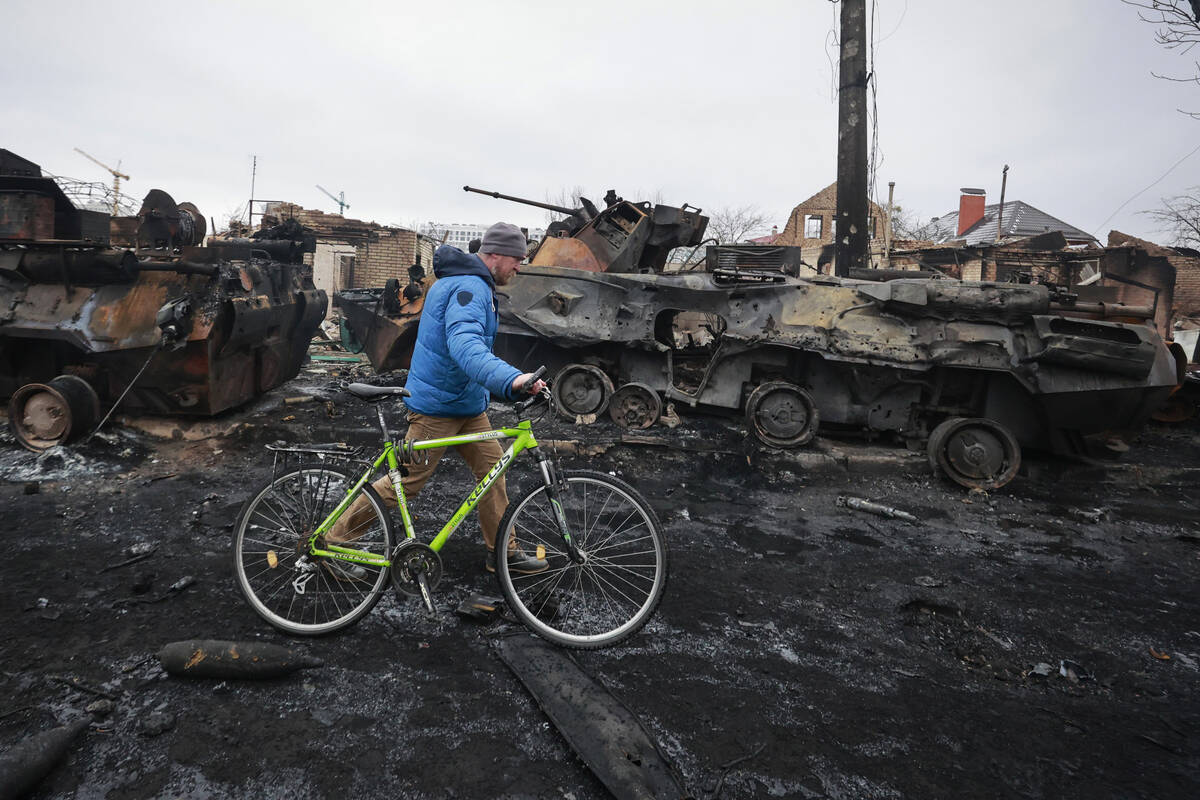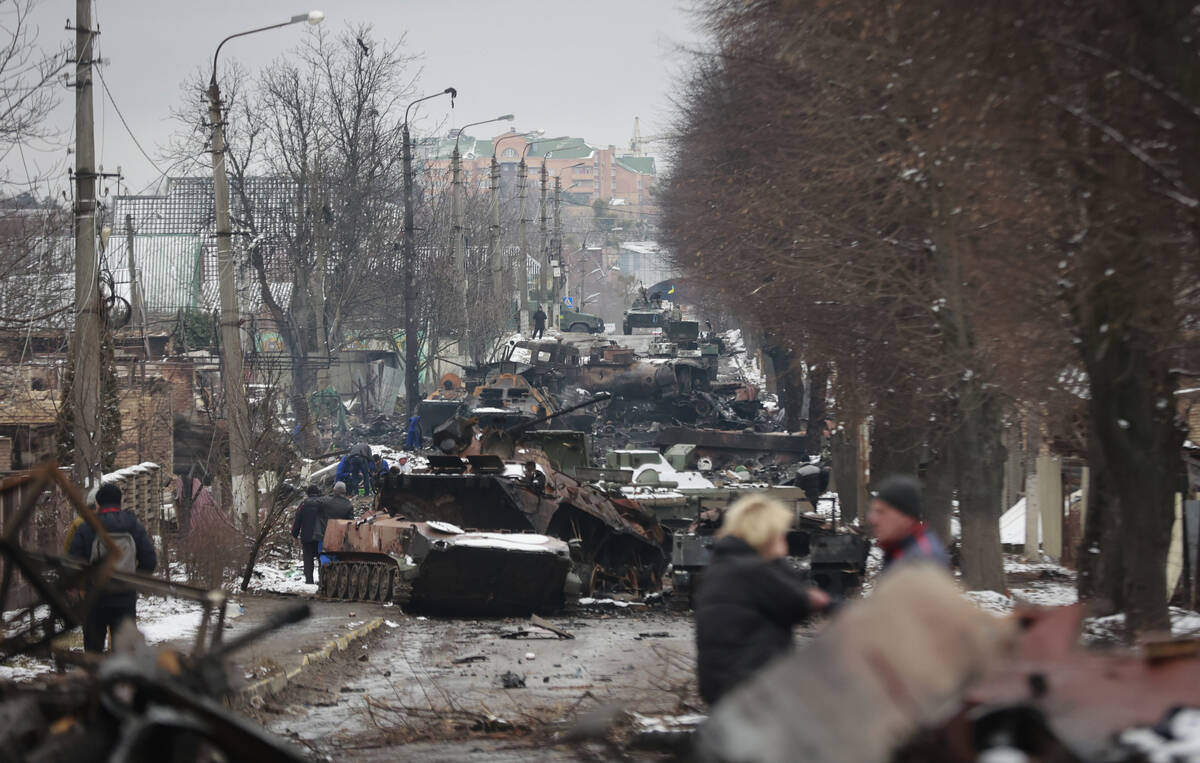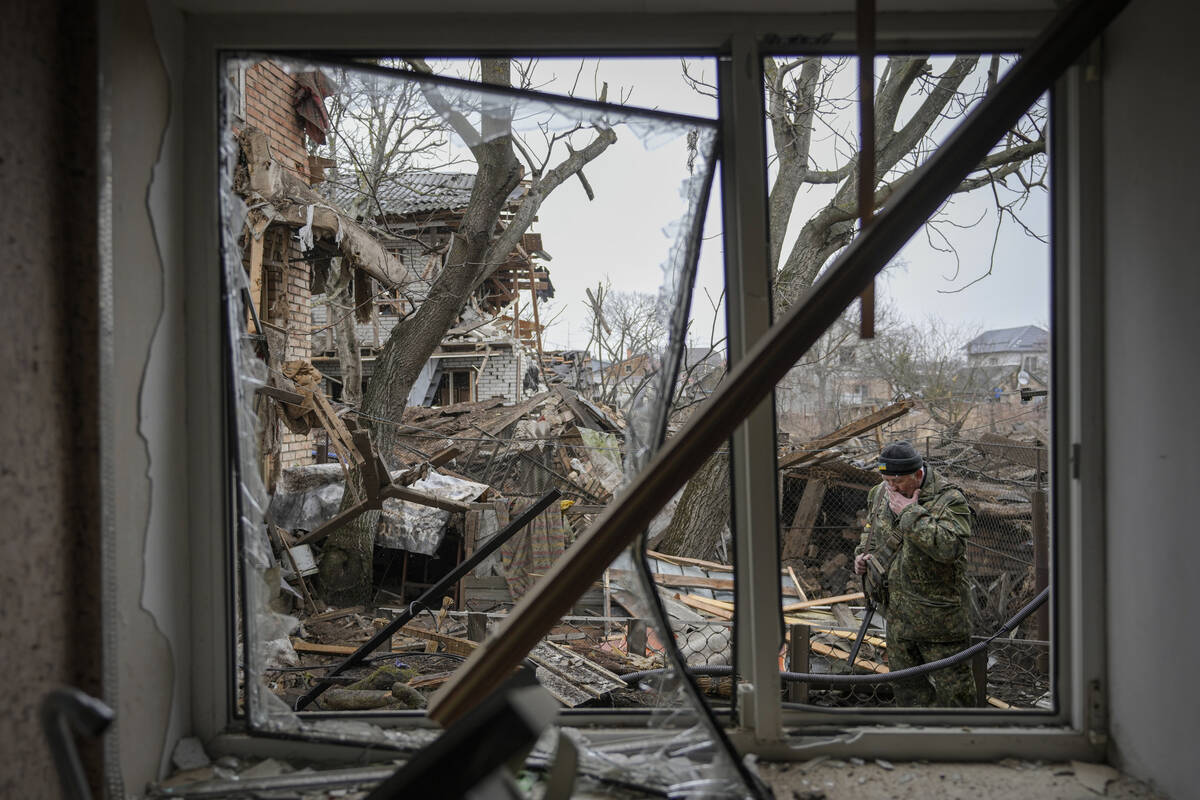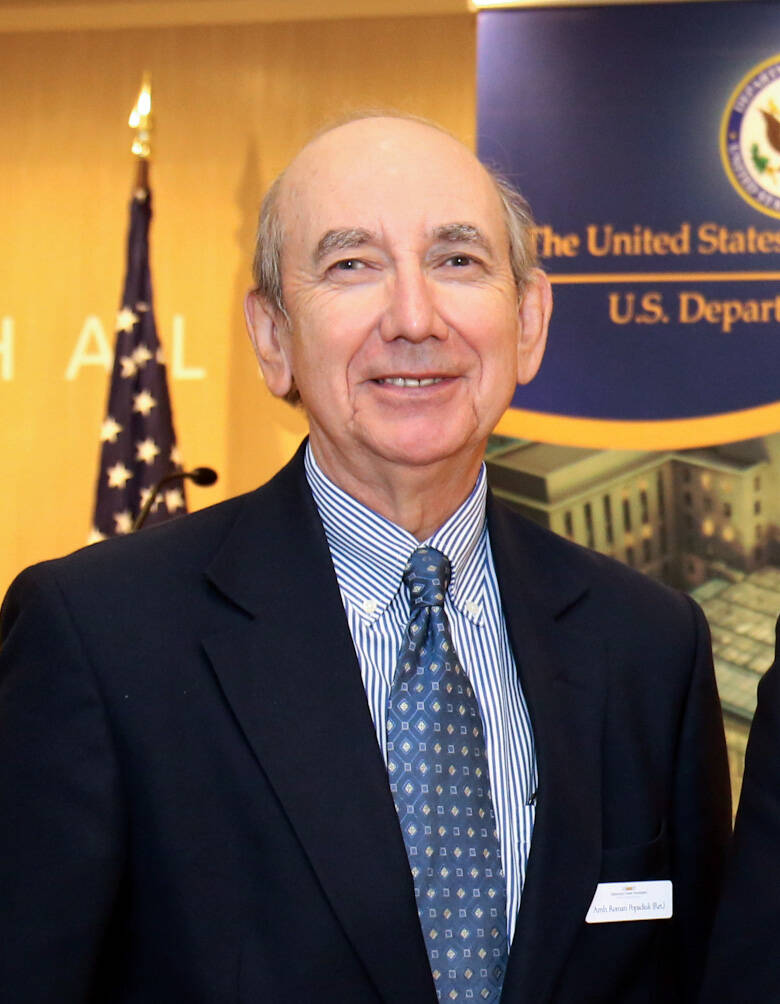Former U.S. ambassador to Ukraine urges tougher sanctions
WASHINGTON – Economic sanctions leveled by the United States and other countries are crippling Russia, but more needs to be done to curtail the military invasion and aggression in Ukraine, former U.S. Ambassador to Ukraine Roman Popadiuk said Friday.
An embargo on oil and energy exports from Russia should have been part of the first tranche of sanctions announced by the Biden administration and European nations as the military invasion began, said Popadiuk, who served as the first U.S. ambassador to Ukraine from 1992 to 1993 after the fall of the Soviet Union.
“Hit them with everything you’ve got, and hit them hard,” Popadiuk, a former career foreign service officer, said in a telephone interview with the Review-Journal from his Maryland home.
Popadiuk said foreign states have historically been able to evade sanctions, through third parties and other tactics. But expanding them this week to include banking systems and specific targets have been productive.
“These sanctions are a motivating force,” Popadiuk said, adding that they could go further by including the Russian energy sector. That’s a step the Biden administration has been unwilling to take thus far, as U.S. gasoline prices increase.
As the war enters its second week, the death toll of civilians has soared as Russian tanks and troops plunge deeper into Ukraine. Despite the resistance, cities have fallen.
Russian troops captured Ukraine’s largest nuclear power plant after shelling the facility, prompting U.S. Energy Secretary Jennifer Granholm late Thursday to issue a message on social media that, according to monitors, there were “no elevated radiation readings near the facility.”
The International Atomic Energy Agency said any accident involving nuclear power plants and a release of radioactive emissions could have severe consequences on health and environment. Reactors at the Zaporizhia power plant were being safely shut down, Granholm said.
Putin a ‘war criminal’
But the incident elevated global concern following Putin’s order to put his country’s nuclear arsenal on a higher state of alert. U.S. officials have called that move reckless.
The potential for involvement of nuclear weapons is a key dilemma facing U.S. policy makers now, said Popadiuk, who began negotiations that led to Ukraine’s ascension to the Treaty of Non-Proliferation of Nuclear Weapons.
The elevated nuclear alert has been condemned by NATO, which also determined that Russia is using cluster bombs and munitions that violate international treaties. Those issues, and claims by Ukraine and independent media reporting that civilians are being targeted by Russian forces have led some to call Putin a war criminal.
“Mr. Putin is a war criminal,” Arseniy Yatsenyuk, a former Ukrainian prime minister, told reporters Thursday during a video presentation through the Council on Foreign Relations in New York.
Yatsenyuk, speaking from Ukraine where he served as prime minister from 2014-2016, said Putin must be held accountable for his actions and appear before an international court to face growing evidence of war crimes.
President Joe Biden, asked by reporters at the White House this week, declined to answer the war crimes question, but did say that Russian invaders were targeting civilians.
If Biden did declare Putin a war criminal, the next question would be what the United States planned to do about it, Popadiuk explained.
Seizing territory
Secretary of State Anthony Blinken said a diplomatic solution remained an option to end the conflict, although not until Russia ceases the invasion and military aggression that has forced millions of people to flee into neighboring countries.
Territorial gain could be Putin’s motivation, Popadiuk noted.
Still, Russian troops are bogged down due to fierce resistance, global unity opposed to Russia’s invasion and internal domestic strife caused by sanctions that have had financial repercussions on not only Russian elites, but middle class residents.
“It’s not going well, from the Russian perspective,” Popadiuk said. Putin and his military leaders mistakenly believed their own narrative that Ukrainians wanted to be liberated, troops would face little resistance and the West would divide over the war.
“I have to say I’m surprised by the European reaction,” said Charles Kupchan, senior fellow at the Council on Foreign Relations. He served on the National Security Council in the Obama administration.
Kupchan spoke with Yatsenyuk in the presentation to reporters.
“He didn’t expect this kind of result and this kind of resistance,” Yatsenyuk said. “He didn’t expect this kind of staunch resolve by the Ukrainian people.”
Yatsenyuk said his country needs fighter jets, anti-tank weapons and surface-to-air missiles to increase the fight with invading forces. The $10 billion the Biden administration is seeking from Congress in Ukrainian aid, which includes humanitarian assistance, is not enough, Yatsenyuk said.
Other nations also have pledged weapons, including aircraft, as well as stinger and anti-tank missiles. But NATO, created as a defensive force, has dismissed calls for a no-fly zone over Ukraine, which is not a NATO country.
Popadiuk has family in Ukraine, who are okay, although he has not spoken to them recently. He has talked with associates and friends there who said they remain strong in their resolve to continue the fight.
The former U.S. ambassador said Russian attempts to occupy Ukraine will only “become a nightmare for them,” because of the resistance to occupying forces.
“There is no way they are going to be able to hold the cities,” Popadiuk said.
Said Yatsenyuk: “This is the start of the end of Putin’s Russia.”
Meanwhile, battles continued as Russian forces advanced and encircled the Ukrainian capital of Kyiv. Fighting is not expected to end quickly.
“A lot of blood is going to be spilled on both sides,” Popadiuk said. “The Ukrainians are not going to give up.”
After the Soviet Union dissolved in 1991, more than 92 percent of Ukrainians voted for independence.
Contact Gary Martin at gmartin@reviewjournal.com. Follow @garymartindc on Twitter.



























